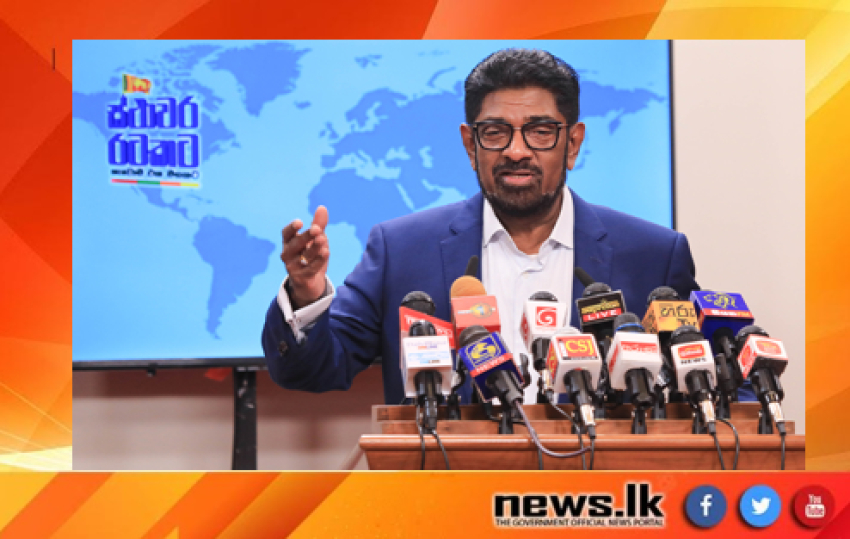The Minister highlighted that the government has taken measures to enhance the efficiency of the procurement process for importing medicines, with a particular focus on ensuring their quality.
These statements were made by Health Minister Keheliya Rambukwella during a press briefing held today (02) at the Presidential Media Centre (PMC) under the theme ‘One Way to a Stable Country’.
Minister Keheliya Rambukwella further remarked that the health sector in the country has received significant attention, acknowledging Sri Lanka’s exceptional dedication to free healthcare at the international and regional levels.
Hence, the government is closely monitoring the steps taken to address the challenges faced by the health sector and how these steps will impact the sustainability of the country’s free healthcare system.
The COVID-19 outbreak posed a major challenge to the global health sector, and since then, the healthcare industry has faced a difficult journey. Normally, the medical supply department procures medications to last for at least a year, ensuring sufficient stock. At that time, there were no financial concerns in the country.
Due to the COVID-19 pandemic, international trade came to a halt as air and sea transportation became inaccessible. Priority had to be given to dealing with the pandemic, resulting in a delay in medication storage.
Once the country successfully managed the challenge of COVID-19 and returned to a normal state, there were significant struggles. As a result, the country faced complete chaos, leading to delays even in the procurement of medications.
Irrespective of the chosen import procedures, the process itself takes a minimum of nine months to complete. Upon discussing the issue with the Cabinet, the current President understood the situation well and engaged with the Ministry of Finance to establish an immediate schedule for drug importation.
Despite certain flaws, the current drug situation is manageable. The Ministry of Health has initiated a program to address these issues and move forward. A comprehensive report on this matter has been prepared and will be soon submitted to the Cabinet.
The government has taken several measures to tackle temporary shortages of medicines. Presently, we produce 19 different types of medicines, and our plan is to add 17 additional drugs to this list by the next quarter. Over the next two years, we aim to increase the production of domestically made medicines by 30% to 35%.
During the press briefing, Minister Keheliya Rambukwella responded to questions from journalists:
Q: The information system established in 2021 in the medical supply sector, which cost millions, is currently inactive. Why invest another 100 million to rebuild it?
A: Simply discarding the existing data system because the delete button was pressed is not possible. An inquiry is currently underway regarding this matter. The Ministry Secretary and Director General have been informed of the necessary steps, and the Parliamentary COPE Committee has been notified as well. If decisions need to be made, I will not hesitate to take appropriate action.
Q: Incidents of anesthetic drug-related issues were reported at Peradeniya Hospital and Ragama Hospital. It was mentioned that a committee will be appointed to conduct a study. What is the current status?
A: Different opinions exist regarding this matter. The Chief Doctor has provided an explanation of the incidents at Peradeniya Children’s Hospital and Ragama Teaching Hospital. According to doctors, this vaccination is not used at Peradeniya Hospital. The initial report on this incident has been received, and we are awaiting information regarding the situation at Ragama Teaching Hospital. The anesthetic drugs have been removed.
Q: According to the CEO of NMR, there is a lack of laboratory facilities and staff to analyze medicines upon their arrival in Sri Lanka. Was medicine from India provided to the public without being tested? Is there truly a shortage of officers? Have you investigated the reasons behind the lack of laboratory facilities?
A: Efforts are currently underway to gather expertise and establish laboratory facilities in collaboration with the World Health Organization. Another group is exploring the possibility of partnering with the private sector. The President has instructed the establishment of these laboratory facilities by the end of this year.




















